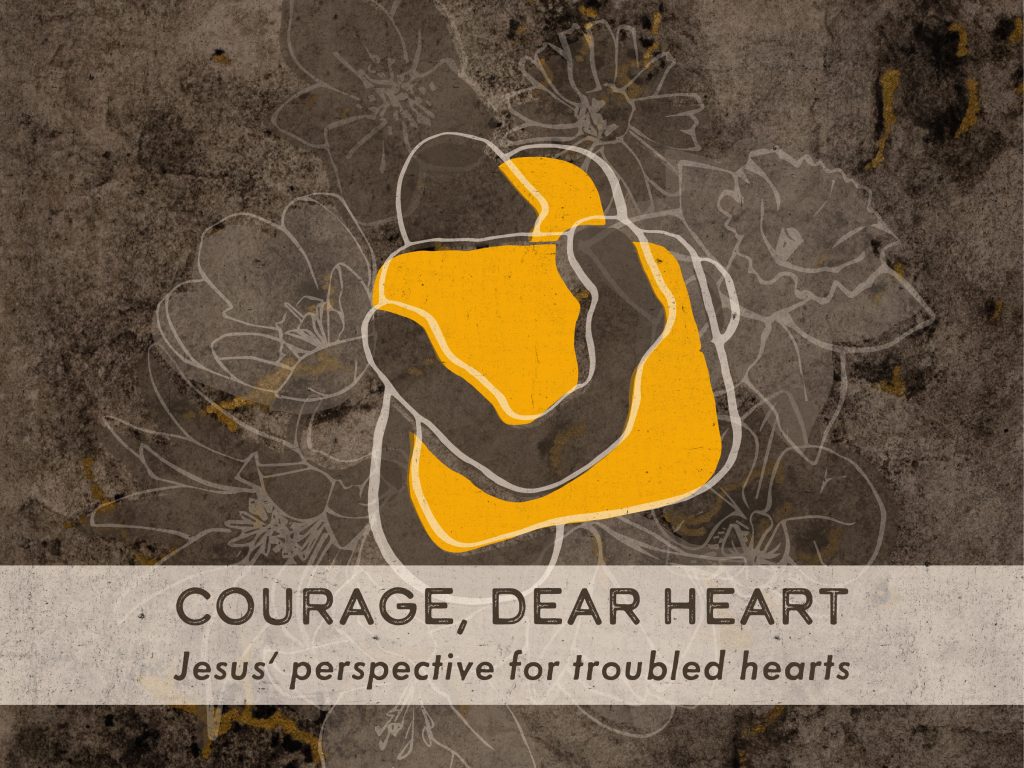Passage: John 16:4b-15
Guide for Group Discussion or Personal Reflection
Sermon Overview
On Jesus’ final night, he told his disciples that “it is to your advantage that I go away” (16:7). How could this be? How could the disciples possibly be better off without Jesus’ physical presence with them? Jesus could speak this way because he was speaking of the Holy Spirit, whom he would soon send to them from the Father. To have the Holy Spirit, the Helper, is truly an advantage because the Holy Spirit brings us life-giving awareness of ourselves—particularly our sinful nature and our need for Jesus—and life-giving awareness of Jesus—and all he is for us in our sin and need.
First, the Holy Spirit shows us ourselves, and our sin. He is called the “helper”, “advocate”, or “counselor” (parakletos)—a translation of a word that emphasizes both “to call/summons” and “to come alongside”. Thus, the Holy Spirit has a role of calling/summoning us to repentance, but also in comforting us that He is for us and with us as he does. The Holy Spirit convicts us of the depth of “sin and righteousness and judgment” (16:8)—because our sin is deeper than we think, and we are not nearly as righteous as we perceive ourselves to be. And our sin is all the deeper because we’ve offended the one who loves us so deeply and who is so faithful to us. None of these things are comfortable to realize about ourselves, but we need these life-giving insights if we are to understand God and his grace, and if we are truly to grow.
But second, the Holy Spirit also reveals the glory of Jesus to us as well: “He will glorify me,” Jesus says, “for he will take what is mine and declare it to you” (16:14). The Holy Spirit is like a floodlight who lights up the glories of Jesus for us, making real to us anew Jesus’ person and work for us.
So, we don’t need to hide from the illumination that Jesus’ brings. It is always for our good. May we grow in hating our own sin, and what it cost Jesus, and grow in adoring Jesus and his endless love for us.
Sermon Outline:
- The Spirit Shows Us Our Sin (vs. 7-11)
- The Spirit Shows Us the Glory of Jesus (vs. 12-15)
Group Discussion & Personal Reflection Guide
Re-read the passage(s): John 16:4b-15
The Spirit Shows Us Our Sin (vs. 7-11)
1) Re-read John 16:4b-7. How is Jesus trying to reframe his disciples’ expectations of his going away? How did they view it? How did he want them to view it, and why?
2) In John 16:7, the Holy Spirit is called the parakletos in Greek—a word translated “Helper”, “Advocate”, or “Counselor”, and a word that includes elements of challenge/calling to account, but also elements of support and coming alongside. How does the Holy Spirit challenge us? How does he come alongside us? How does He do both of these things at the same time?
3) Re-read John 16:8-11, which describe the Holy Spirit’s role in convicting us of sin. Describe a time in the last six months when the Holy Spirit deeply convicted you of your own sin. What did he convict you of? What was your experience like of learning this about yourself? How did it help to grow you?
4) What are some ways that we resist or avoid experiencing the conviction of the Holy Spirit?
5) In the sermon, Pastor Bobby talked about the Puritan notion of “legal repentance” vs. “evangelical repentance”. Legal repentance involves feeling convicted that what we’ve done is wrong. Evangelical repentance includes this, but goes further—evangelical repentance has to do with loathing our sin itself, because the wrong we’ve done was done personally to Jesus, the one who loves us and is committed to us. Have you ever experienced true “evangelical repentance”? What are some signs that this is taking place?
The Spirit Shows Us the Glory of Jesus (vs. 12-15)
6) Re-read John 16:12-15, and meditate on these verses together:
• Why does Jesus say that the disciples could not “bear” the things that he wanted to tell them at that point? What would have to change? (vs. 12)
• What does it mean for the Spirit to guide us into all the truth? What does it not mean? (vs. 13)
• What does it mean for the Spirit to “take what is (Jesus’s), and declare it” to the us?
7) In the sermon, Pastor Bobby used the analogy of the Holy Spirit being like a floodlight—a light that points away from itself, and highlights the beauty and worth of Jesus. How might this analogy help us better understand the Spirit’s work? How is this different than how the Holy Spirit is sometimes understood? And what are the practical implications for our…prayers? Our discipleship? Our gathered worship?
8) Can you think of an example of a time recently when the Holy Spirit really “floodlighted” a certain aspect of the person or work of Jesus for you, causing you to appreciate it and wonder at it in a fresh way?
9) Close your time as a group with silent prayer. First, ask the Holy Spirit to reveal to each person areas of remaining sin, and to convict you of them with new depth and clarity. Next, ask the Holy Spirit to reveal to people fresh angles of God’s love and grace with fresh vividness. If you choose, you can share what was brought to mind.
Additional Application Questions
Q) How else would you like to engage with God this week?
Q) How can you tangibly care for those in your community this week, both inside and outside of the church?
Prayer
Spend time praying for yourselves, our church community, the North Shore community, and our nation and world—particularly those most vulnerable.

